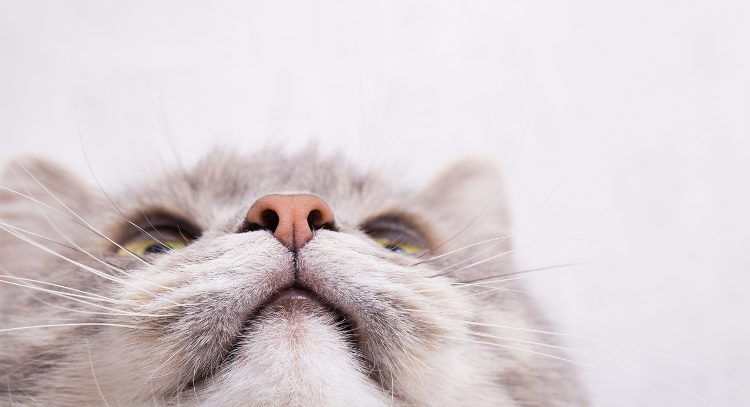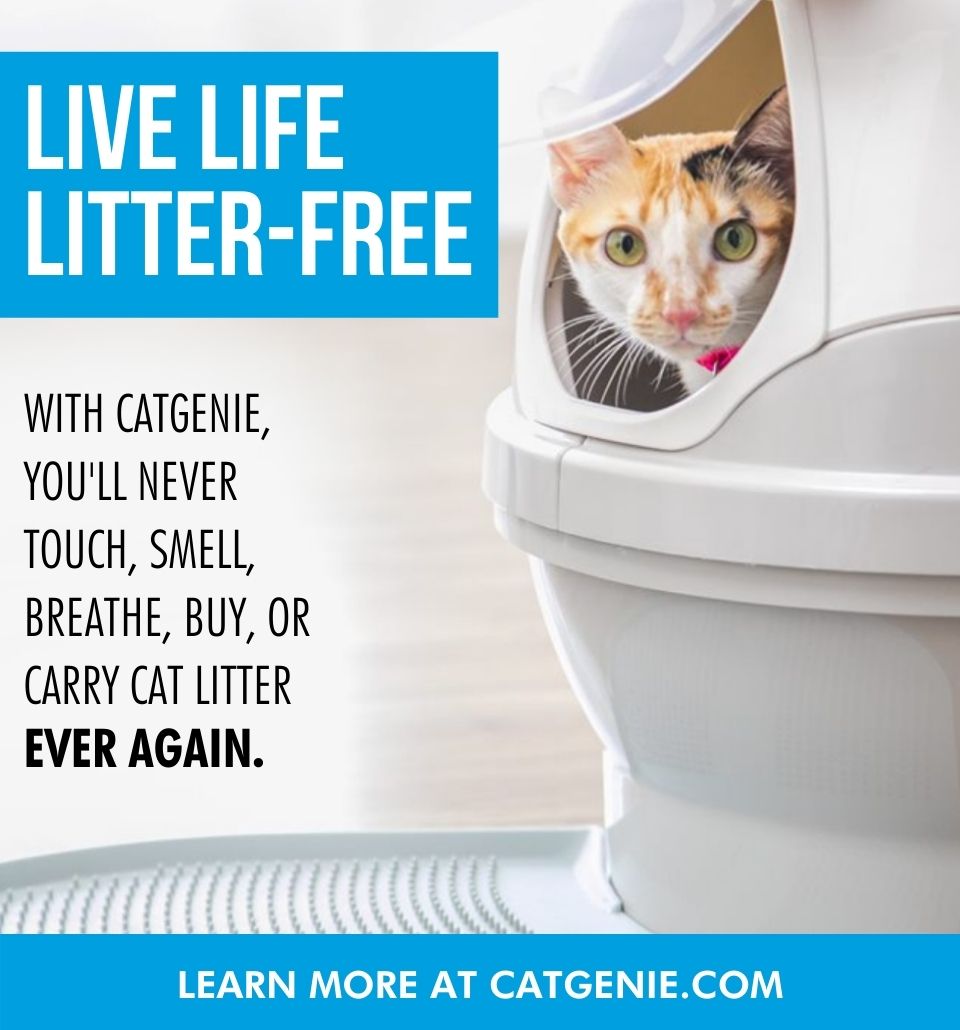Winter cold season is upon us, and for humans that means more than our fair share of sneezes. But what does it mean when your cat sneezes? And can it be a sign of a more serious underlying health problem? Here we’ll take a look at what makes cats sneeze and when it’s cause for concern.
Sometimes a Sneeze is Just a Sneeze
Sometimes cat just sneeze. Like us, any irritant to the nasal passages can cause a cat to sneeze. Dust, pollen, or odors such as those of perfumes or household cleansers can cause a cat to sneeze. Don’t worry about the occasional sneeze, but if your cat experiences extended bouts of sneezing, or if the sneezing is accompanied by other symptoms (i.e., watery eyes, nasal discharge, loss of appetite, or changes in litter pan use), it could be a sign of a more serious problem.
Allergens and Irritants
A range of health conditions can cause excessive sneezing in cats. As in humans, allergens are often the culprit. While most cats show allergy symptoms on their skin rather than in their noses, the nasal membranes of a cat are extremely sensitive, and these can be irritated by a range of things commonly found in the home—including detergents, perfumes, cigarette smoke, scented candles, and pest sprays. If you suspect an allergen or chemical irritant as the cause for your cat’s sudden onset of sneezing, you can try to identify the cause. Have you changed any personal or household products recently? A new brand of laundry detergent or a new type of perfume could have triggered your cat’s sensitivity. If you suspect a specific cause, you can stop using that product for a while to see if your cat’s sneezing resolves. If not, you may have to seek another cause.
Colds and Upper Respiratory Infections
Another common cause of excessive feline sneezing is, as you may have guessed, a common cold or upper respiratory infection—particularly if you’ve just adopted your kitty from a shelter. In such cases, sneezing is usually not the only symptom and is often accompanied by runny, watery eyes or a nasal discharge. A discharge that is this or displays a green or yellow color is a strong indicator of infection. Lethargy and loss of appetite also often accompany respiratory problems in cats because cats use their sense of smell to trigger appetite. Be sure to look at the full range of your cat’s behavior as well as their more acute symptoms.
If you suspect a respiratory infection, you can provide symptomatic relief by cleaning any discharge from your cat’s nose and eyes with a cotton ball moistened with warm water. If your cat shows depressed appetite, try serving a more aromatic wet food or heating the food up a bit in the microwave (just a tiny bit!).
Whatever you do, do NOT give your cat any human cold remedies. Feline physiology is different from our own and these medications can be dangerous to cats. If your cat’s symptoms persist, see your vet. While most viral infections pass with time, some bacterial infections may require prescribed antibiotics. Bacterial pneumonia in cats, for example, can be quite serious and requires professional attention.
Feline Herpes Virus
Another potential cause of prolonged sneezing in cats is the feline herpes virus. A cat that has acquired herpes will carry the virus for its lifetime, with long periods of good health (when the virus is dormant), punctuated by occasional flare-ups. Stress can further exacerbate these flare-ups, as it can depress your cat’s immune system. A definitive diagnosis of feline herpes requires a blood test, so if you suspect herpes as a cause for your cat’s sneezing, a trip to the vet is essential. Your vet can also provide tips for managing the disease and reducing the factors that can trigger a flare-up.
Other Causes of Sneezing in Cats
Excessive sneezing in cats can be caused by a variety of other factors. For example, cats receiving an intranasal vaccine may display excessive sneezing for 4 to 7 days afterward. Also, dental problems can cause a cat to sneeze. An infected or inflamed tooth can result in sinus drainage that can promote sneezing. And in extremely rare cases, certain feline cancers can cause sneezing bouts in cats.
As a general rule, if your cat’s sneezing is prolonged or accompanied by other symptoms (greenish nasal discharge, watery eyes, lethargy, or loss of appetite), it’s best to make an appointment with your vet. We hope these tips help you and your feline friends have a safe and healthy winter season.







